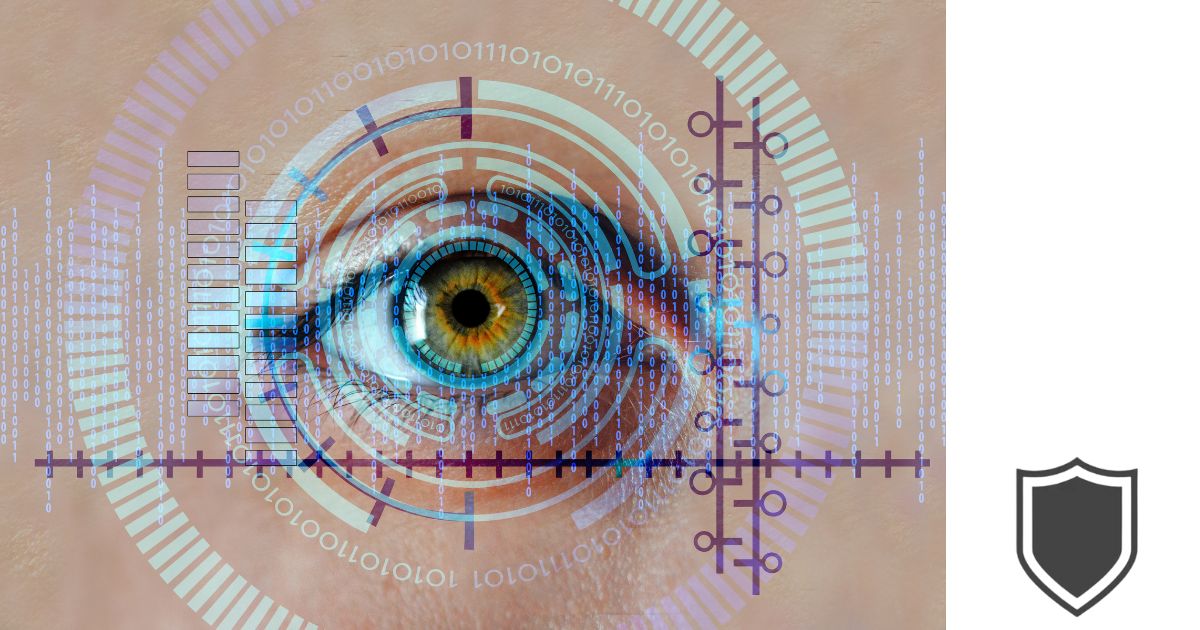Greetings to all enthusiasts of technology and defenders of privacy! My name is Dr. Edward Baldwin, and in this session, we are diving into the complex aspects of a groundbreaking piece of legislation: the Biometric Information Privacy Act. Let’s set off on a journey described as “Decoding Your Digital DNA: Insights into the Biometric Information Privacy Act,” during which we will thoroughly examine the core of what makes you unique – your biometric data.
As technology leaps forward, our biometric data, from fingerprints to facial recognition, becomes an integral part of our daily digital interactions. But with great power comes great responsibility. How do we ensure that this highly personal data remains protected? That’s where the Biometric Information Privacy Act comes into play, setting the stage for a legal framework that safeguards our digital identities.
Whether you’re swiping your finger to unlock your phone, or passing through facial recognition scanners, understanding the Biometric Information Privacy Act is crucial. So, let’s peel back the layers of this legal fortress designed to protect the most personal data you possess – your biometric information. Ready to get started? Let’s decode your digital DNA!
Table of Contents
Overview of Biometric Information Privacy Acts
In recent years, I’ve seen a growing interest in the privacy and security of biometric data — personally identifiable information like fingerprints, facial recognition, and other unique physical characteristics. The state of Illinois pioneered the protection of such data with the Biometric Information Privacy Act (BIPA), enacted on October 3, 2008. This legislation was the first of its kind in the United States and serves as a blueprint for other states considering similar laws.
BIPA sets out parameters for the collection, storage, and use of biometric information by private entities, requiring them to keep this data secure and transparent. Here are a few key provisions that I find it important to highlight:
- Consent: Private entities must obtain informed consent before collecting or using my biometric data.
- Data Retention and Disposal: Policies must be publicly available detailing how and when my data will be destroyed when it’s no longer needed.
- Data Protection: There’s an obligation to use a reasonable standard of care to store, transmit, and protect my data from disclosure.
- Prohibitions: Selling, leasing, or trading my biometric data is not allowed.
In addition to Illinois’ BIPA, state legislation, and potentially the National Biometric Information Privacy Act, introduce similar protections at the federal level, focusing on consent and security measures necessary to maintain the integrity of biometric data. As someone who cares about the security of my personal details, these acts give me confidence that there is a legal framework in place to protect my biometric data from misuse.
Legislative Foundation

In the evolving landscape of digital privacy, the Legislative Foundation for biometric information has become a crucial aspect of safeguarding individual rights.
Origins of Biometric Privacy Legislation
The inception of biometric privacy laws in the United States dates back to the Illinois Biometric Information Privacy Act (BIPA) of 2008. This act emerged as a response to the growing use of biometric technologies and the need to protect individuals’ unique biological attributes such as fingerprints, voiceprints, and facial recognition data from exploitation and unauthorized collection.
Significant Amendments
Although there have been multiple attempts to introduce federal biometric privacy laws, most notably S.4400 – National Biometric Information Privacy Act of 2020, this bill proposed to regulate the collection, retention, disclosure, and destruction of biometric information. While it was read twice and referred to the Committee on the Judiciary, to my knowledge, it has not been enacted. This reflects the complexity of achieving consensus on data privacy issues at the federal level, leading individual states to pursue their own legislative measures.
Scope and Application

Biometric information privacy legislation is designed to address the collection and handling of personal biometric data by entities. My scope and application discussion will highlight who is regulated and what information is protected.
Entities Covered
Entities that typically fall under the purview of biometric privacy laws include private companies and businesses but often exclude government agencies. For instance, the Biometric Information Privacy Act (BIPA), which was enacted in Illinois, applies to private entities but expressly does not regulate government organizations. Covered entities are required to abide by regulations that manage the processing, retention, and deletion of biometric identifiers.
Information Included
The types of information protected under such acts include biometric identifiers such as:
- Fingerprints
- Retina or iris scans
- Voiceprints
- Faceprints derived from photographs
These identifiers are considered sensitive information because they are unique to individuals and, therefore, require stringent privacy measures. In acts like the proposed National Biometric Information Privacy Act of 2020, the scope of protection could potentially extend to a national level, broadening the protective measures for biometric data.
Compliance Requirements

When it comes to adhering to the Biometric Information Privacy Act (BIPA), I must be meticulous with the process. Ensuring compliance is multifaceted and involves gaining consent, protecting the data, and outlining how this information can be disclosed.
Consent Protocols
Firstly, obtaining explicit written consent from individuals is critical before collecting or storing their biometric data. I need to clearly inform them about the specific purpose and length of term for which their data will be used and stored. This consent must be documented and verifiable.
Data Storage and Protection
With regard to data storage and protection, I must apply robust security measures to safeguard biometric information. This includes using encryption and ensuring that storage systems are resilient against unauthorized access and data breaches.
- Encryption: Employ industry-standard encryption techniques.
- Access Control: Limit access to biometric data to only those personnel who require it to perform their duties.
- Audit Trails: Maintain logs of who accesses the data and when.
Public Disclosure Methods
Finally, I am responsible for outlining public disclosure methods for any incident of data breach involving biometric information. Prompt notifications must be sent to affected individuals, and I should comply with any state breach notification laws that prescribe specific timelines and methods of disclosure.
Rights of Individuals

When dealing with biometric privacy, I have certain rights that ensure my data is safeguarded. First and foremost, consent is crucial. I should expect companies to obtain my explicit permission before collecting or using my biometric information. It means they need my opt-in consent, which is a proactive agreement from my side, rather than opt-out, where I would have to take steps to prevent them from using my data.
- Disclosure: Entities must clearly outline why and how my biometric data will be used before I give my consent.
- Access: I have the right to know if a company has my biometric information, and often, I can ask for a copy of the data.
- Security: It’s expected that companies will safeguard my biometric data with reasonable security measures to prevent unauthorized access.
Moreover, the Illinois Biometric Information Privacy Act (BIPA) grants me the power to take legal action if a company mishandles my data. This isn’t just about fines but also gives me the potential to seek actual damages if I’ve been harmed. Here are some particulars about my rights under such policies:
- Retention and Destruction: Companies should have clear policies for how long they keep my biometric information and a scheduled destruction policy once its purpose is served.
- Prohibition Against Profiteering: My biometrics should not be sold, leased, or otherwise profit from without my explicit agreement.
- Legal Recourse: If my rights are violated, I can sue the company for damages. This step emphasizes accountability on the part of entities handling the data.
By being aware of my rights, I can better protect my privacy and hold companies accountable for their treatment of my sensitive information.
Enforcement and Liabilities

When discussing the enforcement and liabilities related to the Biometric Information Privacy Act (BIPA), it’s important to note that non-compliance can lead to serious penalties and potential litigation. My focus here is to break down what these enforcement measures mean for entities handling biometric data.
Penalties
Under BIPA, entities found in violation may be subject to fines. These can range from $1,000 to $5,000 per violation if the entity is found to have acted with negligence or intentionally. The exact amount depends on the nature of the violation and whether it was a result of reckless behavior or intentional action.
Litigation Risks
Companies face significant litigation risks if they fail to comply with BIPA’s requirements. This can take shape as class-action lawsuits, particularly when there are substantial groups affected by the improper handling of biometric data. Moreover, cases like the Supreme Court of Illinois ruling in W. Bend Mut. Ins. Co. v. Krishna Schaumburg Tan highlight the real risk of legal action and the duty to defend violations of BIPA in court.
Impact on Businesses

In my experience, the introduction of biometric privacy regulations has a considerable impact on how businesses operate. For perhaps the most prominent example, I look at the Illinois Biometric Information Privacy Act (BIPA). This act imposes stringent obligations on companies using biometric data:
- Consent: Before collecting biometric information, businesses need my explicit consent. This involves informing me about the purpose and length of data usage.
- Data Management: They must have a public policy in place outlining their biometric data handling practices.
Penalties for non-compliance can be significant, which drives companies to prioritize the following:
- Developing clear data handling and consent policies.
- Investing in secure storage and data management systems.
- Training employees on compliance and data protection best practices.
It’s not just Illinois; other states are following suit, potentially creating a complex regulatory environment that businesses operating in multiple regions must navigate. The key for businesses is to stay agile and informed on legislative changes to ensure compliance and avoid hefty damages from litigation.
For instance, in case of mishandling biometric data, they could face legal actions from individuals. Understanding the varied nature of biometric data laws across states can be challenging, but it’s paramount in maintaining operations and customer trust. Compliance isn’t just about avoiding litigation; it conveys that a business values consumer privacy, which can enhance my trust and loyalty as a customer.
Global Comparisons

In this section, we’ll briefly touch upon the European Union’s approach to biometric privacy and juxtapose it with other regions to understand the diverse landscape of biometric data regulation.
Biometric Privacy in the EU
In the European Union, the General Data Protection Regulation (GDPR) sets a high standard for privacy, including the handling of biometric data. Biometrics are classified as “special categories of personal data,” and processing such information is prohibited unless certain conditions are met, such as explicit consent.
Notable Legislation:
- GDPR: Broad-reaching implications for biometric data handling, emphasizing user consent and stringent data security requirements.
Differences in Other Jurisdictions
While the EU provides a strong framework for biometric privacy, other jurisdictions follow different laws with varying levels of protection.
- United States: No federal biometric law exists, but states like Illinois, Texas, and Washington have enacted their own regulations. Illinois’ Biometric Information Privacy Act (BIPA) is especially noteworthy, demanding consent before collecting or storing biometric data and allowing individuals to sue for violations.
- Asia-Pacific: In contrast, countries like China have embraced biometrics without equivalent comprehensive privacy laws. Japan and South Korea have more stringent laws, reflecting a nuanced picture across the region.
- Africa & Latin America: Many African and Latin American countries are currently developing their biometric and data protection regulations, showing a growing awareness but varied progress.
By examining biometric privacy regulations globally, we notice a patchwork of laws reflecting different cultural and societal values towards privacy and personal data.
The Last Word
And there we have it, a comprehensive journey through the intricate world of biometric data protection and the Biometric Information Privacy Act. I aimed to shed light on the critical aspects of safeguarding our most personal identifiers in an increasingly digitized world.
As we conclude, remember that understanding and advocating for the protection of your biometric data is more than a proactive measure; it’s a fundamental right in our modern digital landscape. The Biometric Information Privacy Act isn’t just legislation; it’s a testament to the evolving relationship between technology, privacy, and individual rights.
So, stay informed, stay vigilant, and remember to regularly review how your biometric data is being used and protected. Your digital DNA is unique to you, and it deserves the utmost protection. Here’s to navigating the digital future with confidence and assurance in the safety of our biometric identities!
Biometric Information Privacy Act FAQs

In this section, I’ve compiled answers to some common questions regarding the Biometric Information Privacy Act (BIPA) to help you understand compliance, differences between state laws, obtaining consent, legal repercussions for violations, individual rights, and recent changes to the legislation.
How does one comply with the Illinois Biometric Information Privacy Act when collecting biometric data?
To comply with the Illinois Biometric Information Privacy Act when collecting biometric data, I ensure that I inform individuals in writing about the specific purpose and length of term for which their biometric data is being collected, stored, and used. Additionally, I receive a written release from the individuals whose biometric information is being collected.
Can you outline the main differences between biometrics privacy laws in Illinois and Washington?
The major difference between Illinois’ and Washington’s biometric privacy laws is that the Illinois law requires consent before collecting biometric information, while Washington’s law allows for the collection of biometric data, provided it is not used for a purpose unrelated to the services provided without obtaining consent. Illinois also allows for a private right of action in case of violations, which is not permitted under Washington’s law.
What are the necessary steps to lawfully obtain consent under the Biometric Information Privacy Act?
To lawfully obtain consent under BIPA, I provide a written policy that establishes a retention schedule and guidelines for permanently destroying biometric identifiers and biometric information. I make this available to the public and receive a written release from the individual prior to collection of their biometrics.
What kind of legal actions can be taken against a company for a Biometric Information Privacy Act violation?
If a company violates the Biometric Information Privacy Act, it can face legal action including substantial fines, lawsuits, and enforcement actions by state attorneys general. Fines can be up to $1,000 for each negligent violation and $5,000 for each intentional or reckless violation.
What should individuals know about their rights under biometric privacy legislation?
Individuals should know that under biometric privacy laws, they have the right to be informed about the collection and use of their biometric data, to consent to or decline the use of their biometric information, and to have their data securely stored and ultimately destroyed according to the law’s requirements.
How has the landscape of biometric privacy laws changed as of 2023?
As of 2023, the biometric privacy law landscape has seen more states considering and implementing their own laws. Cities have passed ordinances imposing additional obligations on commercial entities, reflecting a broadening and an intensified focus on biometric data protection nationwide.









